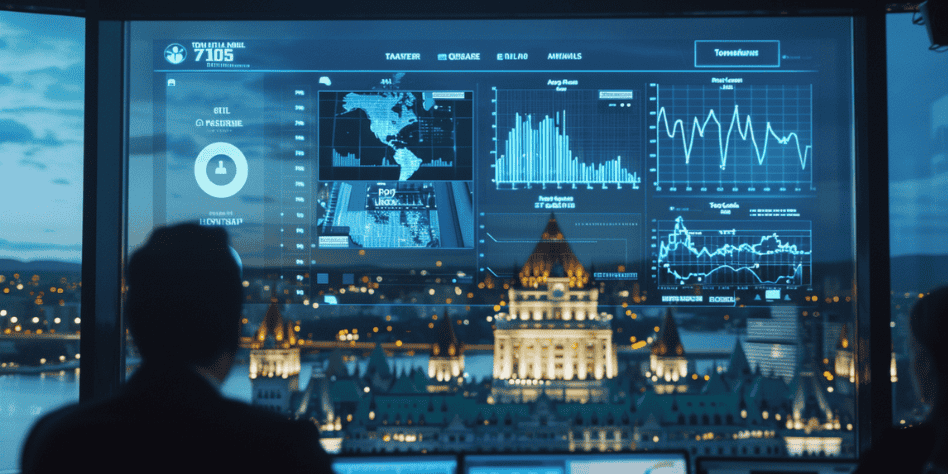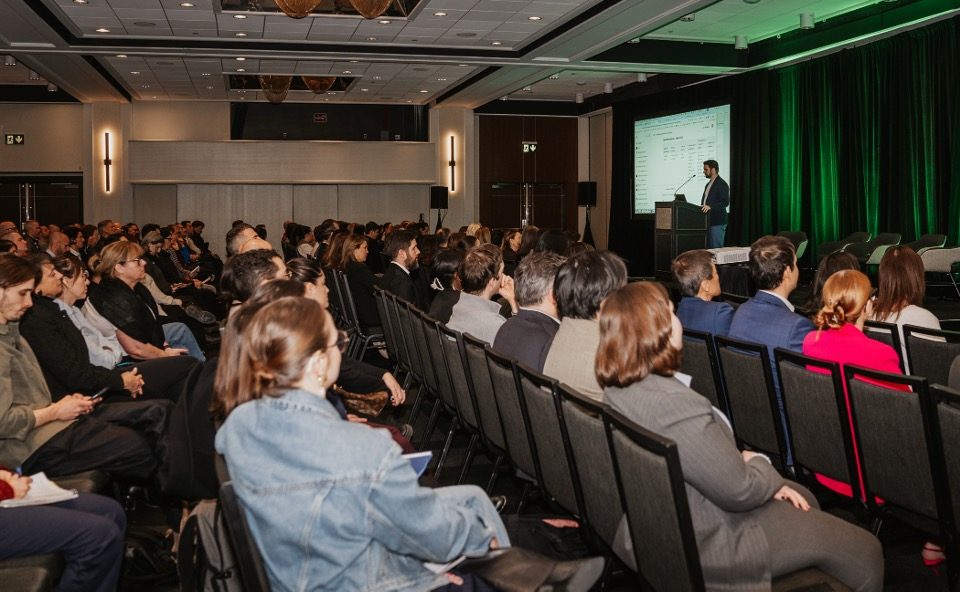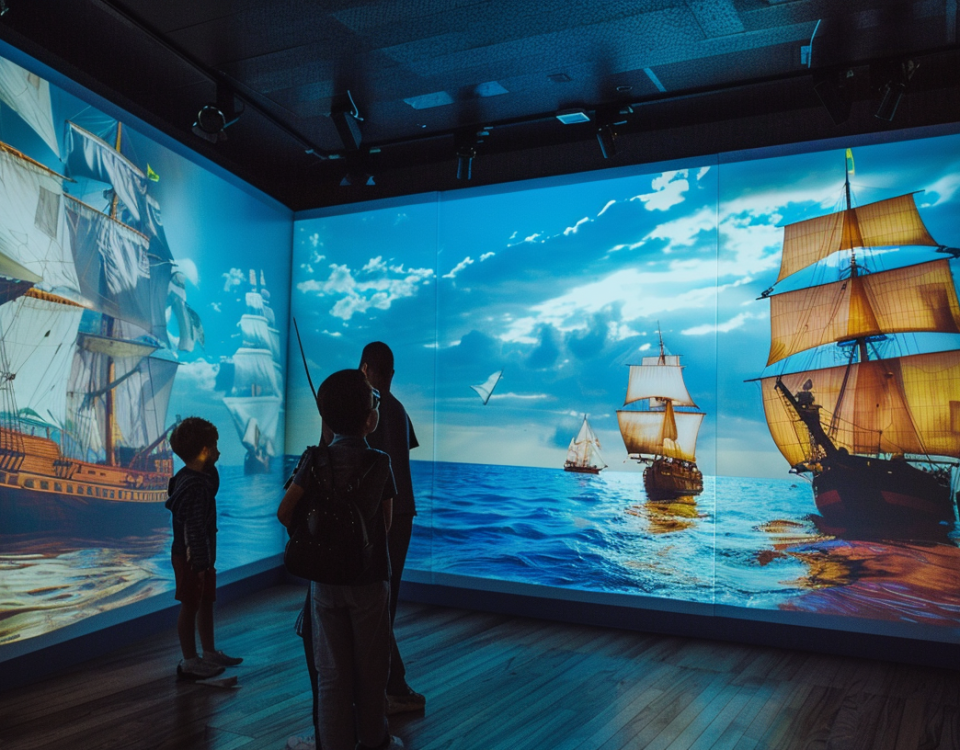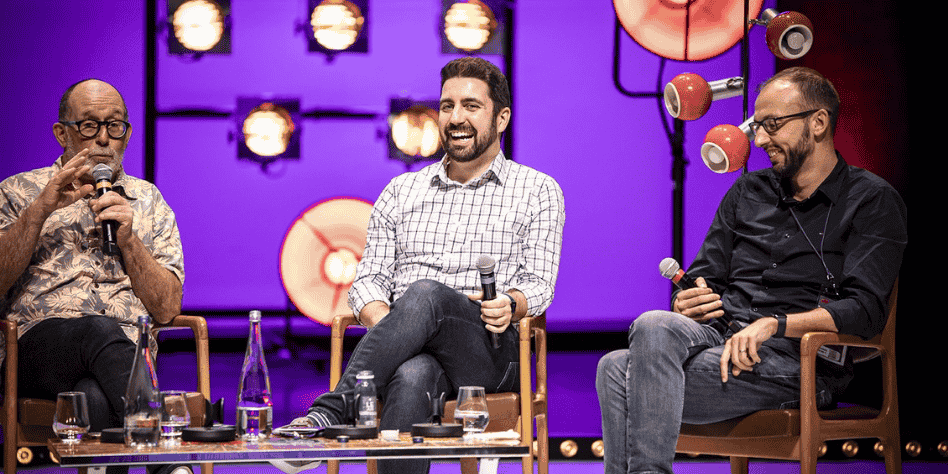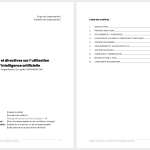
Free template – Policy and framework for the use of artificial intelligence
10/01/2025
The 5 AI trends that will transform tourism in 2025
04/09/2025Introduction: AI, an unavoidable revolution for tourism
Artificial intelligence (AI) is at the dawn of a profound transformation in the tourism industry. Like the arrival of the Internet or smartphones, it is disrupting traditional practices, changing travelers’ expectations and pushing companies to innovate. By 2025, AI will have established itself as a key tool for delivering customized experiences, automating processes and increasing the competitiveness of organizations.
However, this transition also raises ethical, ecological and organizational questions. How can tourism businesses prepare for this inevitable future? Let’s discover the five major trends that will redefine the tourism sector over the next 12 months.
1: Generative artificial intelligence: unprecedented personalization
Generative AI will emerge as an indispensable tool for creating tailor-made travel experiences. This technology will be able to design personalized itineraries, write guides tailored to each traveler, and even generate immersive visuals to preview destinations. Conversational chatbots, powered by this AI, will offer instant and natural assistance, answering users’ questions with precision.
These tools are no longer a simple aid, but become creative and operational partners for industry professionals.
2. AI Agents: virtual concierges who go everywhere with us!
In 2025, tourism will take a major turn with the arrival of personalized digital assistants, or what is also known in French as Agent AI or Agentique. Imagine an intelligent companion that takes care of everything for you: it learns your tastes, plans your itineraries, books your activities, and remains available to help you in real time, no matter where you are.
More than just a tool, these AI-powered assistants become your tailor-made travel guides. These AI-powered agents analyze each user’s preferences to suggest personalized itineraries, book activities, and offer real-time assistance. Thanks to their ability to learn, they anticipate travelers’ needs, enhancing their satisfaction. And much more.
Read Jean-Philippe Duchesneau’s article on the subject to find out more.
3. AI and Videos: A new tool for our destinations and attractions?
Last December, OpenIA launched its new Sora version, Sora Turbo, a video generator based on a simple text request, accessible to ChatGPT Plus and Pro users. A few days later, Google retaliated by introducing Veo2, an enhanced version of its own video generator. With the arrival of these new, ever more advanced tools, the list of iA video generation tools is constantly growing, and with it, the possibilities for content creation.
More than a technological innovation, video generators radically transform the creative process, making it more accessible, especially for SMEs with limited marketing budgets and resources. As Lysandre Michaud-Verreault recently wrote, “Opening up fascinating horizons for content creation, At this stage (January 2025), however, they remain limited in quality and maturity, especially for promotional initiatives aimed at the general tourism public. The use of these tools still needs to be assessed with caution.
Indeed, the picture is likely to change rapidly, and in just a few months…
Read Lysandre Michaud-Verreault’s recent post on the subject:
4. Automation and fluidity: redefining the customer experience
Automation will drastically improve the customer experience. By 2025, AI will be able to handle a multitude of tasks in real time, guaranteeing seamless interaction with travelers.
Application examples:
- Simplified bookings: A booking platform like Expedia can handle complex requests, such as booking a package including hotel, transport and activities, in just a few clicks.
- Automated response to consumer e-mails
- Multilingual chatbots: Hotels like Fairmont Le Château Frontenac could use chatbots to answer customers’ questions in their native language, 24/7.
These tools will not only improve traveler satisfaction, but also optimize operating costs for tourism businesses.
5. Human resources transformation: human-IA collaboration
Generative AI like ChatGPT improves employee competitiveness by automating repetitive tasks, producing first versions of documents, plans or emails, and translating quickly, for example. It also facilitates access to information and offers customized solutions, enabling employees to focus on strategic and creative tasks, boosting their efficiency and innovation.
A recent Google report estimates that AI could save an average of 175 hours per year per employee, freeing up time for strategic activities. That’s an impressive figure – the equivalent of more than a month’s work.
The impact is so great that companies and associations need to plan for an AI user manual for employees.
To this end, the AI and Tourism Working Group has just made available, free of charge, a sample Policy and guidelines on the use of artificial intelligence. This policy has been designed to meet the needs of our industry and is based on best practices in ethics and compliance.

And what about the environment?
In 2025, the environmental impact of artificial intelligence is becoming a central issue, particularly in the tourism sector. As I explained in my post on the subject with Guillaume Cromer : AI-related technologies consume large quantities of energy to power the data centers required for their algorithms. These infrastructures, essential for personalized experiences and predictive analytics, raise important questions about their carbon footprint.
In response to these concerns, a number of initiatives have been launched:
- Optimizing algorithms: tech companies are working to make their AI models more efficient. This includes tuning algorithms to reduce power consumption while maintaining high performance.
- Sustainable data centers: Major players such as Google and Amazon are investing in infrastructures powered by renewable energies (solar, wind) to limit their environmental impact.
- Hardware advances: Manufacturers like NVIDIA, a leader in AI acceleration chips, are developing more energy-efficient components.
The environmental impact remains problematic and deserves our attention, but these efforts will enable us to better reconcile innovation, technology and sustainability in response to the growing expectations of environmentally conscious travellers.
At the same time, ethical issues such as data protection and the fair use of technology will continue to dominate discussions. Companies will have to comply with strict regulatory frameworks, such as those proposed by the Montreal Declaration on Responsible AI.
Conclusion: AI, an opportunity now – with awareness of the stakes
Artificial intelligence represents an essential transformation lever for tourism in 2025. And we shouldn’t wait until the end of the year before making significant changes. Each of these trends offers unique opportunities to improve services and meet travelers’ expectations.
To take advantage of these advances, tourism businesses need to start today: by training, reviewing employee tasks and management processes, experimenting and investing in appropriate technologies. By adopting a proactive approach, they can not only improve their competitiveness, but also contribute to smarter, more responsible tourism.
By Pierre Bellerose, tourism consultant and Chairman of the AI and Tourism Working Group

